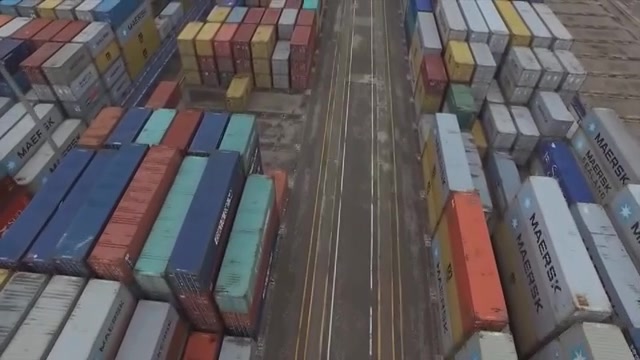Impact of Tariffs on American Businesses and Economy
In recent times, American companies have begun to reevaluate their operations and future projects amidst escalating trade tensions with China and the implementation of new tariffs by the U.S. government. This environment of uncertainty is prompting businesses to cancel existing orders and delay their expansion plans as they brace for potential impacts on trade policies.
Economic Contraction and Trade Disruption
The U.S. economy experienced a contraction of 0.3% in the first quarter of 2025, marking the first decline in three years. Factors contributing to this downturn include a significant reduction in consumer spending and a 5% reduction in imports, which heavily impacted economic performance. Economists attribute considerable blame for this deterioration to the unpredictability of the current administration’s trade policies.
Tariff Landscape
Since taking office, President Trump has altered traditional American trade policies, imposing various tariffs on imports, which now include a steep 10% levy on numerous products globally. Most notably, Chinese goods have faced a striking 145% tariff, resulting in retaliatory measures from China applying a 125% tariff on American exports. This tit-for-tat strategy has raised concerns regarding the stability of U.S.-China trade relations.
Logistical Challenges and Consumer Repercussions
Recent reports indicate that the Port of Los Angeles anticipates a significant reduction in shipping volumes, projecting a 35% drop as major retailers halt their imports from China. This ripple effect is also evident in the ocean freight industry, where China-to-U.S. bookings plummeted by 60% after the tariffs were announced, leading to a cancellation of 25% of scheduled sailings.
Many businesses opted to import goods ahead of the tariff implementations, causing a temporary surge in imports that contributed to the widening trade deficit. However, economists warn that such stockpiling may only provide short-term relief, with imminent shortages expected in key categories reliant on Chinese manufacturing, such as furniture and toys.
Consumer Confidence and Future Outlook
Consumer sentiment has also taken a hit, declining for five consecutive months to its lowest point since the onset of the COVID-19 pandemic. A significant portion of consumers now anticipates a slowdown in hiring, reminiscent of conditions during the Great Recession.
Retailers are responding by putting their expansion plans on hold, uncertain about consumer spending patterns. According to expert predictions, the probability of a recession within the next year has surged to 55%, with some economists estimating a 90% chance if tariffs continue unchanged.
Potential Workforce Implications
Analysts project that businesses may initiate layoffs as the downturn in imports from China affects the supply chain. Experts, including Flexport CEO Ryan Petersen, emphasize that while product shortages will present challenges, the more significant concern may be the economic impact of reduced sales and subsequent layoffs in the retail and transportation sectors.
Prospects for Trade Policy
Despite the ongoing trade war, there are indications that the U.S. administration may seek to deescalate the situation. Treasury Secretary Scott Bessent has suggested that current tariff levels are unsustainable, raising the possibility of revised trade negotiations in the near future.
As economic conditions evolve, businesses and consumers alike are grappling with the ramifications of trade policies that have disrupted longstanding economic relationships and patterns, leaving many to wonder what the future holds.

